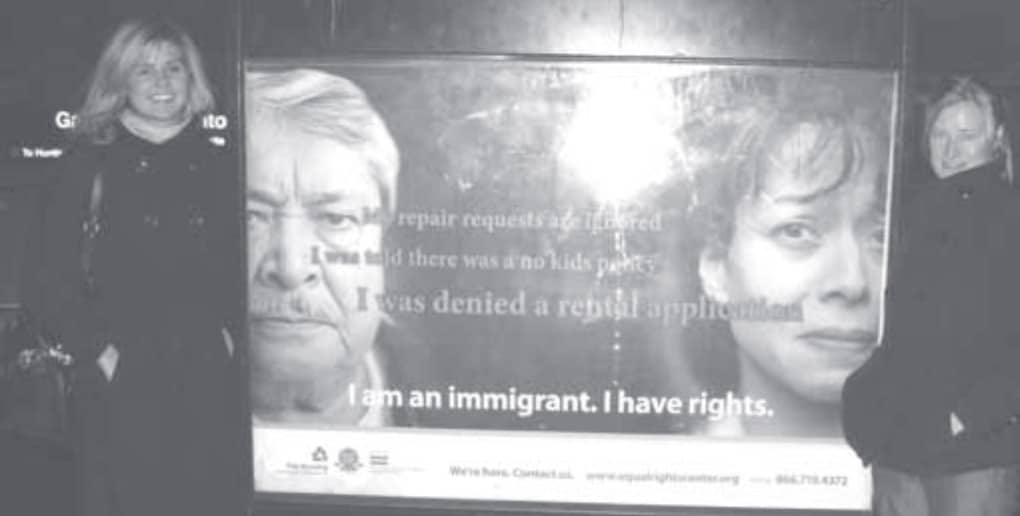This month, Washington D.C.’s Equal Rights Center (ERC) launched a Fair Housing “Know Your Rights” Campaign to educate survivors of domestic violence about their fair housing rights.
The Campaign focuses on a series of public service advertisements in both English and Spanish, printed in Metro Center, Gallery Place-Chinatown, L’Enfant Plaza, Mt. Vernon Square, and Shady Grove Metro stops. Advertisements also appear on multiple bus lines throughout the D.C. Metro Area.
“Many renters do not know about the unique protections under DC’s Fair Housing Law. A landlord cannot evict you because of noise or damage, and you can break lease if you feel unsafe,” said Leah Maddox, ERC communications and outreach associate.
Put into effect in 2007, the Protection from Discriminatory Eviction for Victims of Domestic Violence Amendment Act of 2006 amended the D.C. Human Rights Act to include a “victim of an intra-family offense” in the list of protected classes shielded from discrimination in housing. It also amended the D.C. Rental Housing Act to allow an individual’s status as a domestic violence victim to serve as a defense against eviction in the District’s landlord-tenant courts, provided that the individual is being evicted because of an incident related to domestic violence. Thirdly, it allowed a victim to terminate a housing lease early without financial penalty in order to flee abuse.
The Campaign aims to be a factor in eliminating homelessness nationwide. The ERC’s “Housing Discrimination against Survivors of Domestic Violence in the District of Columbia” 2008 report states that approximately half of the District’s 16,000 homeless are women and children. It cites a direct correlation between domestic violence housing discrimination and homelessness. While the report states that the District currently provides 48 safe beds in confidential locations for women and children who are domestic violence victims, the ERC maintains that this isn’t enough.
“Domestic violence is the number one reason women are homeless in the U.S.,” said Maddox.
Maddox points out that there’s big need to educate domestic violence survivors about their rights. The campaign also includes targeting with the idea of incorporating the immigrant LBGTQ communities.
“Landlords worry about property values and crime but end up targeting their own individuals,” Maddox said.
Currently twenty two states offer some type of housing protections for domestic partners, although only five states plus the District classify survivors of domestic violence as a protected class.
The ERC plans to work towards expanding protections as well as circulate their domestic violence report nationwide. ERC Communications and outreach manager Ashley White says their most important goal right now is to educate on the current D.C. law.
White and Maddox say that slogans that make statements such as, “My Life, My Rights,” “I’m an immigrant, I have rights,” and “Domestic violence survivors have a way out,” are the most important.
“We want people to be educated, feel empowered and go somewhere to know that they have rights,” said White.








